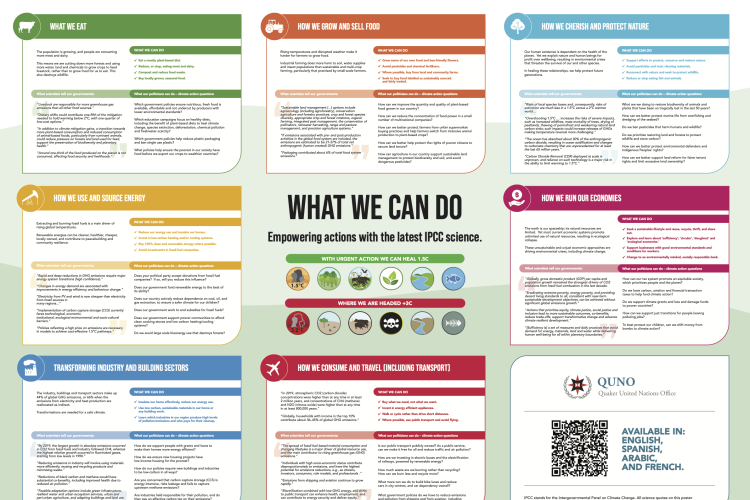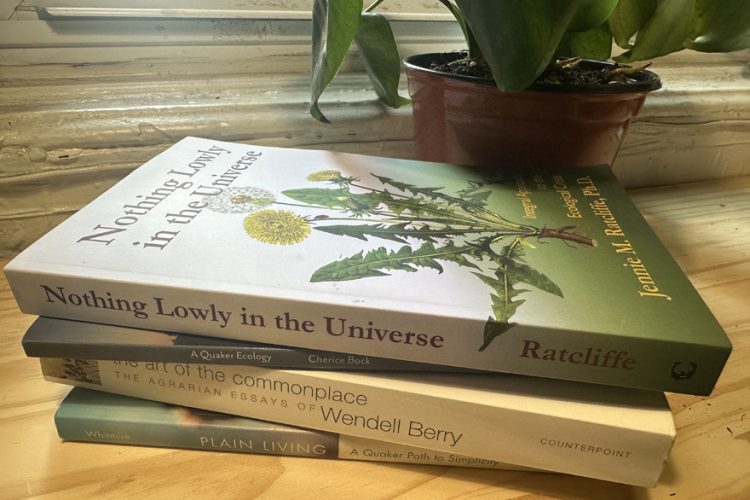A Meditation on Seed and Seedtime
By Tom Small
Virtually all of us, expelled from the garden that was our heritage and birthright, seek to recover, somehow, a seed that will germinate and flower, nourish and sustain us. In that seed is the genesis of contemplative action, its harbinger and its sign.
Scott Chaskey, like Wendell Berry a farmer, poet, and storyteller, offers us a path and a process in his new book, Seedtime: On the History, Husbandry, Politics, and Promise of Seeds (Rodale, 2014). Chaskey weaves together genetics, agriculture, myths, dreams, cosmology, and poetry, Joseph Campbell and Vandana Shiva, Hindu cosmology and Native American mythology, polemic and personal experience “gained on the ground.”
SOMETHING WONDERFUL YET TO BE
Chaskey begins his book with a poetic epigraph, “Fair seedtime had my soul,” the line which launches William Wordsworth into his personal epic on the “Growth of a Poet’s Mind.” Seedtime is the time of planting, germination, and new growth. Seeds are both progenitor and memory of life. Words are the memory of culture. In words and seeds, “nature yet remembers what was so fugitive” (Wordsworth, “Ode: Intimations of Immortality”).
For Jane Goodall, a seed is a time capsule—a compendium of information to be remembered. For Thoreau, it’s an expectation of something wonderful yet to be: “Convince me that you have a seed there, and I am prepared to expect wonders.” Indeed, he marvels, “The very earth itself is a granary and a seminary.”
“Seeds, like words,” writes Scott Chaskey, “behave like capricious and autonomous beings.” A word, like germ plasm, or like a stem cell, or like a seed, can give rise, as conditions change over the course of time and evolution, to wondrous, unexpected variety and diversification. The stem word smei, remarks Lewis Thomas, metamorphoses into our words “smile” and “miracle”—an unexpected but significant relationship. The root word pri, marvels Rebecca Solnit, transforms into Sanskrit priya, meaning dear or precious, and Germanic frijaz, meaning beloved, as well as fridu, meaning peace, and frithus, with our modern variant, “free.” Also, into Old English friond and our modern variant, “friend.”
THE INTELLIGENCE OF WORDS AND SEEDS
Thomas Hardy invokes another wonderfully fertile word in his line, “the ancient pulse of germ and birth.” Pulse signifies the pulsating flow of lifeblood, and also the edible seeds of pod-bearing plants, such as beans and peas, miraculous nitrogen-fixers that nourish the soil, other plants, and countless creatures, including us.
“So, if we give words space to perform,” concludes Chaskey, “perhaps we stand a chance to inherit their intelligence. This seems like a wiser choice to me, rather than to force our intelligence upon them.”
Gary Snyder defines intelligence as “the information passed through the system.” A seed is a compendium of such information, the inheritor, genetically, of an entire history of life. “We are literally,” says Gary Paul Nabhan, “living off the fruits of other creatures’ labors—those of the birds, bugs, and beasts that loosely coevolved with seed plants over the last hundred million years.” Such fruits are the gift not only of nature herself but also careful stewardship, plant-breeding, and seed-saving by countless generations of indigenous peoples and farmers with an intuitive sense of natural processes.
WE ARE SUSTAINED FROM BENEATH
For Snyder, therefore, the ultimate “practice of the wild” is giving thanks for, among other foods, the “innumerable little seeds” that are “sacrifices to the food-chain.” Our meal and our sustenance are, in the grace he offers at table, “The work of many people/ And the sharing of other forms of life.” All the generations of people, and all the forms of life. As the Bhagavad Gita tells us, everything sacrifices for everything else. We are sustained (literally held up from underneath) by the life beneath our feet, which comprises all that there is, all that has been, or will be. Seeds, insists Vandana Shiva, are the “repository of life’s future evolution.”
Following Vandana Shiva’s lead, Chaskey inveighs against Monsanto and the megacorporations that want global control of seed. “Freedom of Seed,” for both writers, involves the right to save seed, breed new varieties, exchange seed freely, and preserve vanishing diversity in the face of corporate monocultures both in the fields and of the mind. For Vandana Shiva, bija, seed, is the new charka, Gandhi’s spinning wheel, involving his practice for achieving swaraj, self-rule, freedom from empire and corporate hegemony. Like the spinning wheel, seed is what Wendell Berry calls a complete action, both a powerful symbol of self-regulation and an action for achieving it.
NOTHING WASTED OR DEGRADED
Vandana Shiva and Wendell Berry both invoke the “law of return”; we must return not only thanks but also sustenance to the soil and its creatures, wherefrom we receive our sustenance. In this time when, as Kenny Ausubel observes, we are burning books—seeds, species, whole ecosystems—we haven’t even read yet, our task is to observe this law. The “wheel of life” must be kept turning and returning, with nothing wasted or degraded. Life depends on continuous returning, the universal cycle of unfolding and enfolding.
Physicists, mathematicians, and cosmologists insist that the seeds of time and change involve and enfold everything else. “In a sense,” observes mathematician and philosopher Alfred North Whitehead, “everything is everywhere at all times.”
NOTHING AND YET EVERYTHING
Open the tiny seed of a banyan tree, Satish Kumar’s mother told him. What do you find there? Nothing. And yet everything. A marvelous tree of many trunks and many stories waits quietly, enfolded, in potential, for the right conditions to begin a unique unfoldment, its own expression of a hidden order that involves the entire universe. And so it is with any seed, including ours. “All the matter of our bodies, from the very first,” says physicist David Bohm, “enfolds the universe in some way” (Wholeness and the Implicate Order).
Although I do not fully comprehend his quantum-theory mathematics or the teachings of his spiritual mentor Krishnamurti, I love the cosmic vision of David Bohm, his sense of undivided wholeness in flowing movement. The true meaning of meditation, he offers, “implies an original and creative act of perception into all aspects of the mental and physical, both through the senses and through the mind.” In such a holistic contemplative act lies the whole secret of gardening.
LET US CULTIVATE OUR GARDEN
Like Goethe, let us seek, in the growth and metamorphosis of plants, a realization that “everything has equal rights to a common centre which manifests its hidden existence precisely through this harmonic relationship between every part and itself.”
Like Thoreau, let us have “faith in a seed.” Like Chaskey and Wordsworth, let us cherish the “fair seedtime” which, from soil and silence, nourishes the soul, the garden, and the body.
Dust as we are, the immortal spirit grows
Like harmony in music; there is a dark
Inscrutable workmanship that reconciles
Discordant elements, makes them cling together
In one society.
–Wordsworth, The Prelude or, Growth of a Poet’s Mind, I, 340-344
Who alive can say
‘Thou art no poet; may’st not tell thy dreams’?
Since every man whose soul is not a clod
Hath visions, and would speak, if he had loved
And been well nurtured in his mother tongue.
–John Keats, The Fall of Hyperion, I, 11-15
BIBLIOGRAPHY & NOTES
Kenny Ausubel, Seeds of Change: The Living Treasure (1994)
Wendell Berry, The Gift of Good Land (1981)
Jane Goodall, Seeds of Hope: Wisdom and Wonder from the World of Plants (2014)
Satish Kumar, Soil, Soul, Society: A New Trinity for Our Time (2013)
Gary Paul Nabhan, Enduring Seeds: Native American Agriculture and Wild Plant Conservation (1989)
Vandana Shiva (ed.), Manifestos on the Future of Food and Seed (2007)
Gary Snyder, The Practice of the Wild (1990)
Lewis Thomas, The Lives of a Cell: Notes of a Biology Watcher (1974)
Henry David Thoreau, Faith in a Seed (1993)
Rebecca Solnit is a columnist for Orion, an anti-war, environmental, and human-rights activist, author or co-author of 14 books.
Kenny Ausubel is the co-founder (with his wife) and CEO of Bioneers, international organization dedicated to finding solutions to our environmental crises. Bioneers conferences and events attract large numbers of young people.
Gary Paul Nabhan is an ethnobotanist, a research associate at Univ of Arizona, co-author of a wonderful book, The Forgotten Pollinators (1996), which is to the current movement to save the pollinators what Silent Spring was to the movement to save the birds. Gary is a Lebanese-American and a native of Gary, Indiana, but his work is primarily with Southwest U.S. ecosystems and native American cultures. He’s currently on a nationwide lecture tour about saving the Monarch butterflies. His essay “Metamorphosis” (available online) is worth looking at.
Satish Kumar is of course the follower of Gandhi and Vinoba Bhave and the founder of Schumacher College in Devon, co-founder with Vandana Shiva of Bija Vidyapeeth (Seed University) in India.


